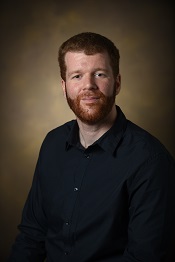Thomas Clements, an undergraduate professor, is beginning his research career at Vanderbilt University. He speaks of how he plans to transition his Graduate Research about CRISPR to Vanderbilt, and some of the greater implications of his work.

PhD Thomas Clements researches CRISPR at Vanderbilt University
How did you get into biology?
It’s the classic. In like middle school, science was always my favorite class… my favorite color was green so that was my science notebook. I was always into science and math, and in highschool I started to get more into science as I started to realize math was getting harder for me, whereas science was getting more fun… After that I had to decide [a major]. I had always liked biology and chemistry (and I did not know biochemistry existed when I was a senior in highschool) so I decided to major in whichever one I got a higher grade in on the AP test. I got a higher grade in biology so I was like okay I will be a biology major.
How do you hope to bring your graduate research on CRISPR, a DNA editing tool, to Vanderbilt?
I’m going to start it … in the spring with 5 or 6 students…. I want to make what is known as a CRISPR factory. We’d partner with either faculty here or elsewhere and … get a bunch of students… to knockout [a] gene and [they’re] going to know everything about this gene which is very similar to my graduate process except we had very specific genes. … Also I want to then make … new variates on CRISPR. In my thesis project we made a new CRISPR that made larger deletions than normal crisp,r but here i want to really use the classroom to make even new varieties of CRISPR and … test them out to see if they work better.
What is the biggest challenge you have faced and will it translate here?
Because my lab was not well funded [in Grad School], we had to do a lot of [experiments] the cheap way. … We couldn’t afford to do 50 sequencing reactions per experiment so I had to look at other results. I [didn’t] get a precise [answer] but I could tell whether or not there [were] mutations that [were] there and then selectively sequence and that took me a lot more time. Here, … we can farm it out to a higher number of students to work on it so we … can selectively sequence the best ones, [or] even partner with other labs who might have the funding.
What are the greater implications of your work?
It’s like doing the exact same thing you could do with selective breeding just faster. We don’t have to then mix the two highest yield producing plants together anymore to get the high yield producing babies we can figure out what gene does that and just manipulate it our self. …There could be some ethical concerns about designer babies and all of that stuff but I think if we can use this to cure childhood diseases let’s push this as far as we can go.
Outside of CRISPR, what else are you looking to bring to campus?
My big social media thing is that I’m “science baller” and want to connect basketball which is my passion and hobby and try to connect science to that and be the scientist that also knows how to play basketball. It’s not like scientists are these nerdy people who just can’t talk to anyone. … After … I’m going to join an improv class so then i’m going to learn some techniques and hopefully that would help me in the classroom as well, or maybe we can begin like a science improv group which I think would be fun.
